发布日期:2024-10-18本条信息已被查看了10次
The Deputy Director General of the Food and Agriculture Organization of the United Nations (FAO) visited Shanghai Ocean University to talk about the new future of aquatic development
2024年10月7日,联合国粮食及农业组织(FAO)副总干事贝丝•贝克多(Beth Bechdol)和总干事办公室特别顾问夏敬源来校访问,校长万荣、副校长江敏会见来访客人。国际交流处、水产与生命学院负责人陪同。在访问期间,双方就可持续水产发展、“蓝色转型”、国际合作等重要议题进行了深入交流和探讨。
On October 7, 2024, Beth Bechdol, Deputy Director General of the Food and Agriculture Organization of the United Nations (FAO), and XIA Jingyuan, Special Advisor to the Office of the Director General, visited the Shanghai Ocean University, President WAN Rong and Vice President JIANG Min met with them. Accompanied by the Heads of International Exchange Office and the College of Fisheries and Life Science. During the visit, the two sides carried out in-depth exchanges and discussions on sustainable aquatic development, “Blue Transformation” , international cooperation and other important topics.
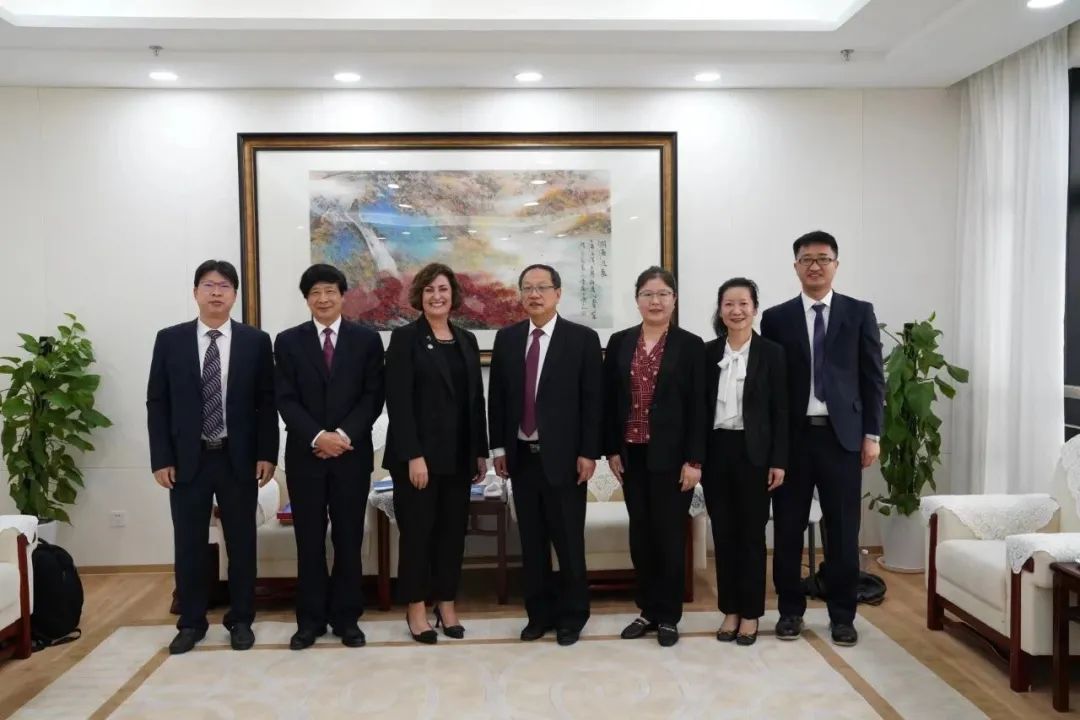
万荣对贝丝•贝克多的到来表示热烈欢迎,并简要介绍了学校的基本情况和学科优势,深情回顾了学校与FAO的合作交流历程,重点介绍了水产生态养殖中心(CEA)近年来的工作进展和提出了未来合作思考。贝丝•贝克多对学校的接待表示衷心感谢,对学校在“双一流”学科领域所取得的成就给予了高度赞誉,并表示愿意进一步加强与学校在水产技术推广、人才培养和南南合作等方面的深度合作,共同为全球水产乃至农业发展贡献力量。
WAN Rong expressed his warm welcome to Beth Beckedor and briefly introduced the basic situation and disciplinary advantages of the university, fondly recalled the history of cooperation and exchange between the university and FAO, and highlighted the work progress of the Center for Aquatic Ecological Aquaculture (CEA) in recent years and put forward the thinking of future cooperation. Beth Becketto expressed her heartfelt thanks for the school's reception, highly praised the school's achievements in the field of “double first-class” disciplines, and expressed her willingness to further strengthen in-depth cooperation with the school in aquatic technology promotion, talent training and South-South cooperation, and jointly contribute to the development of the global aquatic and even agricultural development.
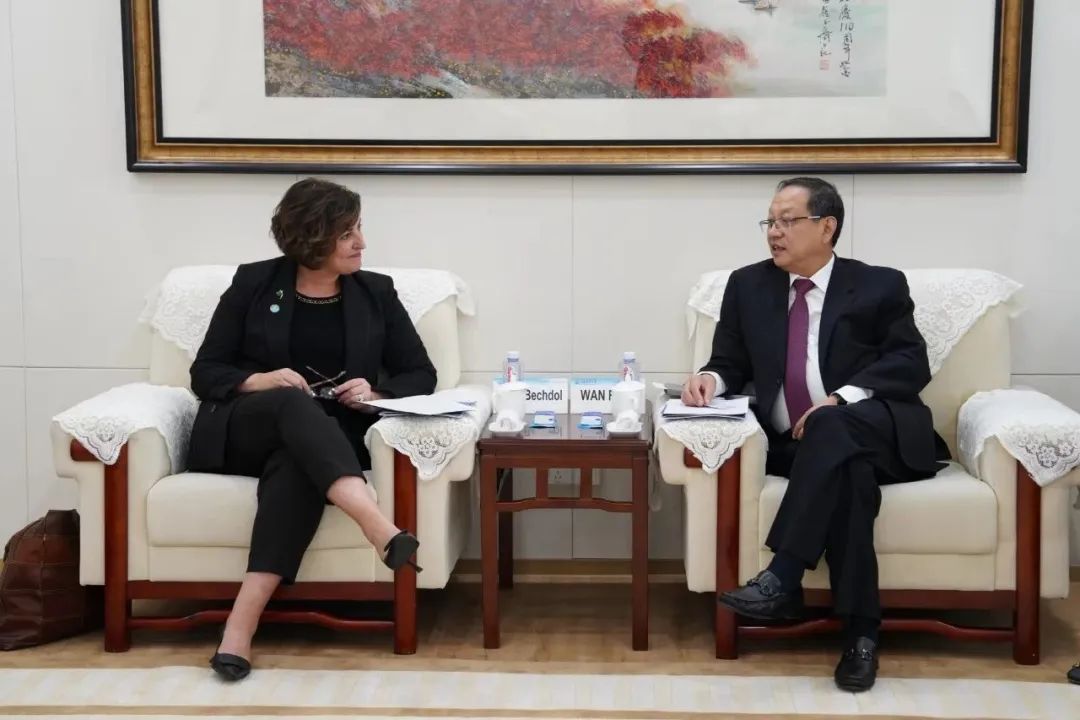
贝丝•贝克多还作了《全球粮食和农业的最新趋势以及对联合国粮食及农业组织工作的见解》的报告,报告会由副校长江敏主持。现场反响热烈,掌声雷动;互动环节,同学们踊跃提问,贝丝•贝克多详细作答,并鼓励海大青年学生积极参与到联合国2030可持续发展议程目标实现过程中。
Beth Beckedor also made a report on “the latest trends in global food and agriculture and insights into the work of the FAO”, which was presided over by the Vice President JIANG Min. The audience responded enthusiastically and applauded; during the interactive session, students asked questions enthusiastically, which were answered in detail by Beth Beckedor, who encouraged the young students of SHOU to actively participate in the process of realizing the goals of the UN 2030 Agenda for Sustainable Development.
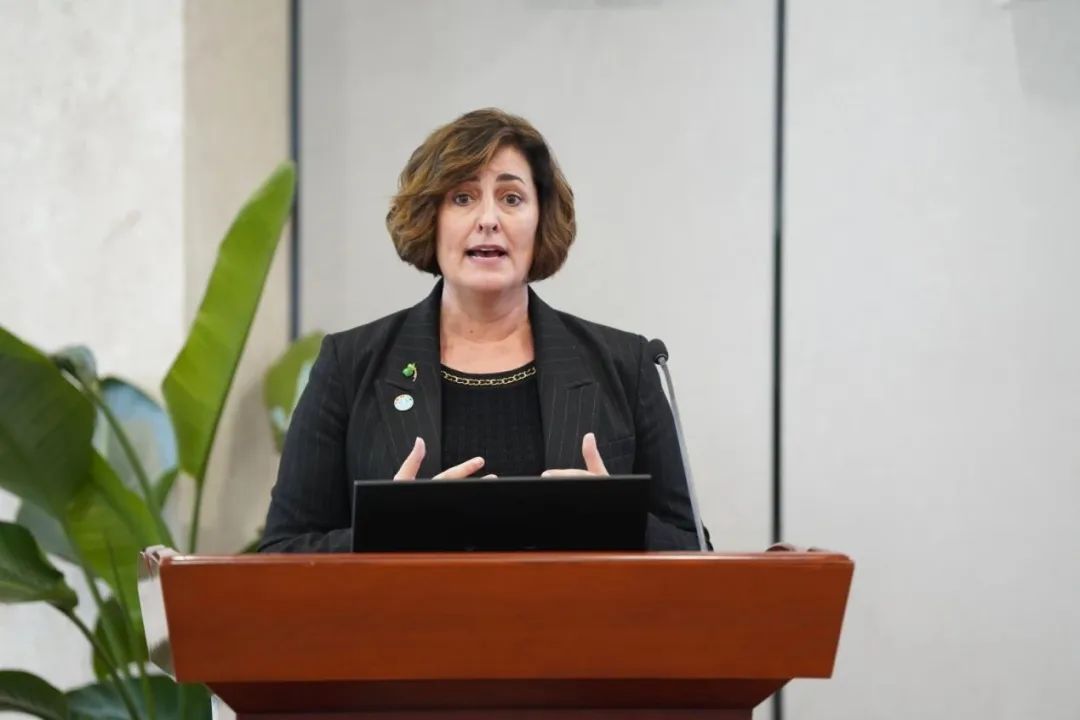
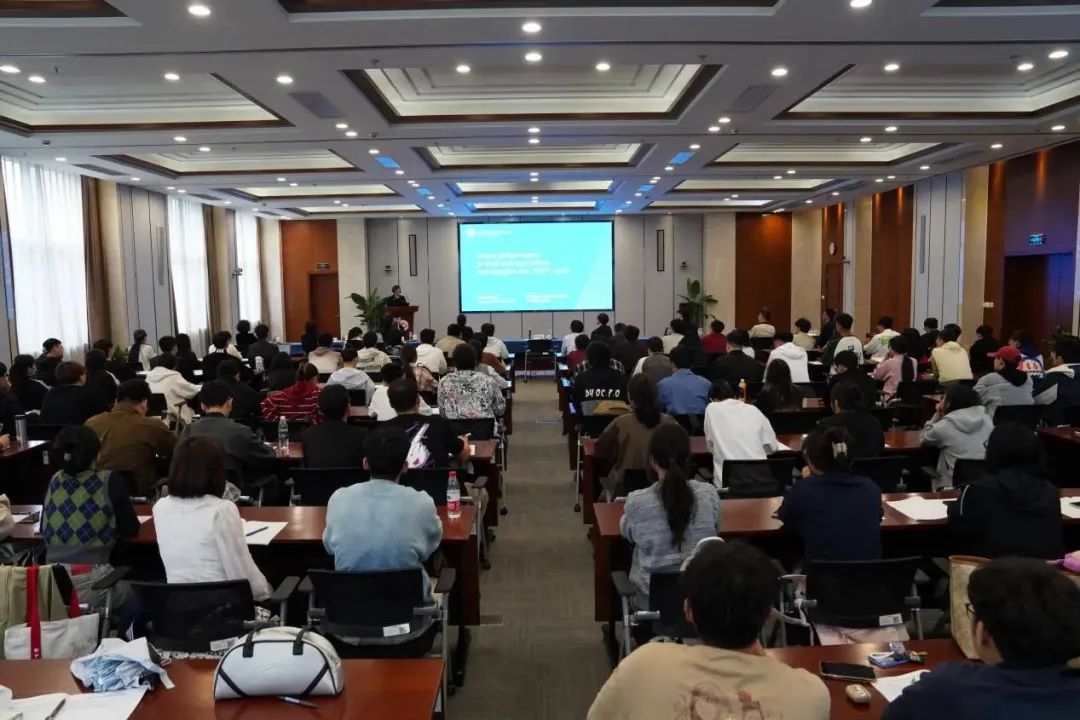
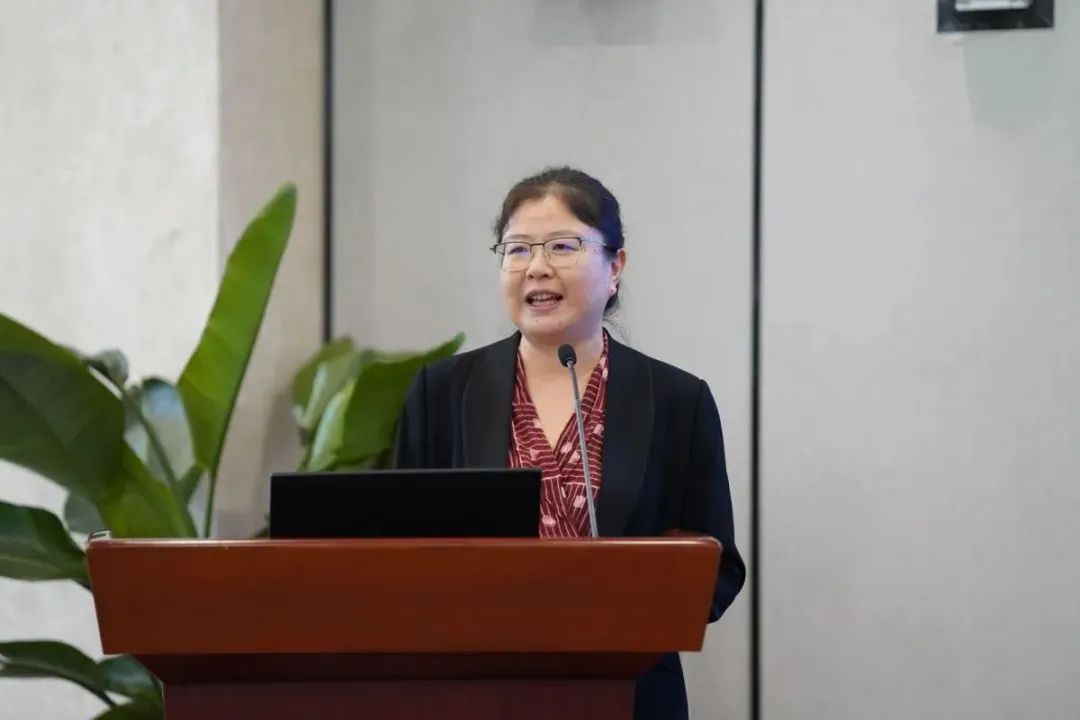
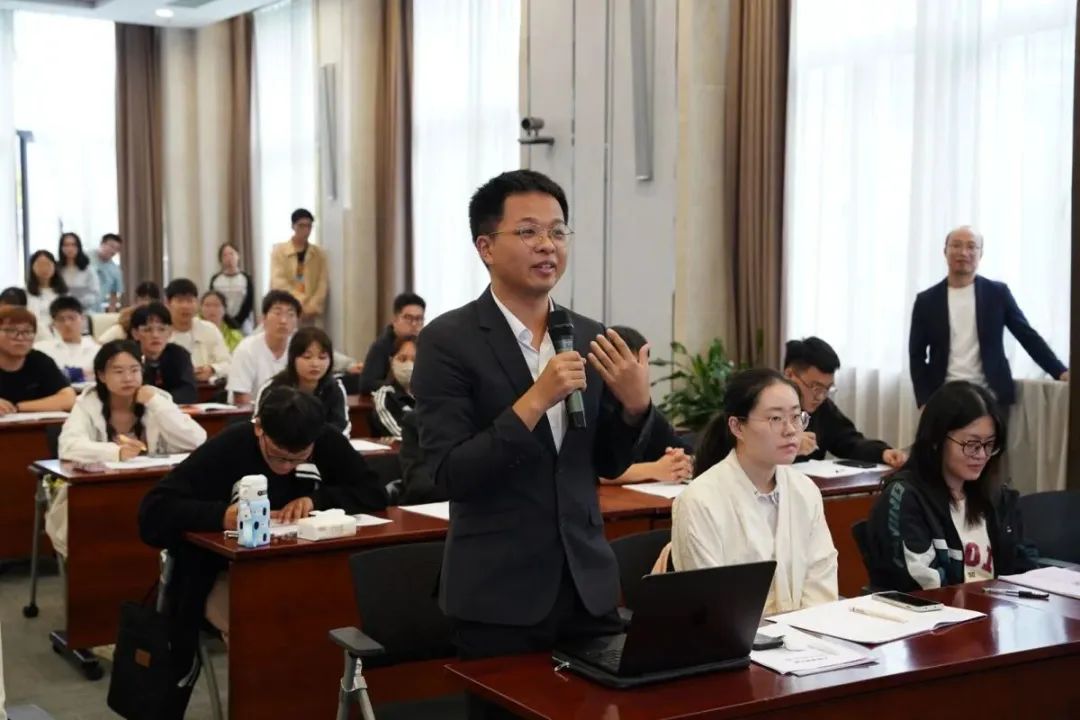
贝丝•贝克多一行还参观了学校“双一流”成果展,进一步了解学校近年来取得的发展成果。双方就后续的合作计划达成了共识。
Beth Beckedor and her delegation also visited the exhibition of “Double First-class” achievements of the university to further understand the development results achieved by the university in recent years. Both sides reached a consensus on the subsequent cooperation plan.
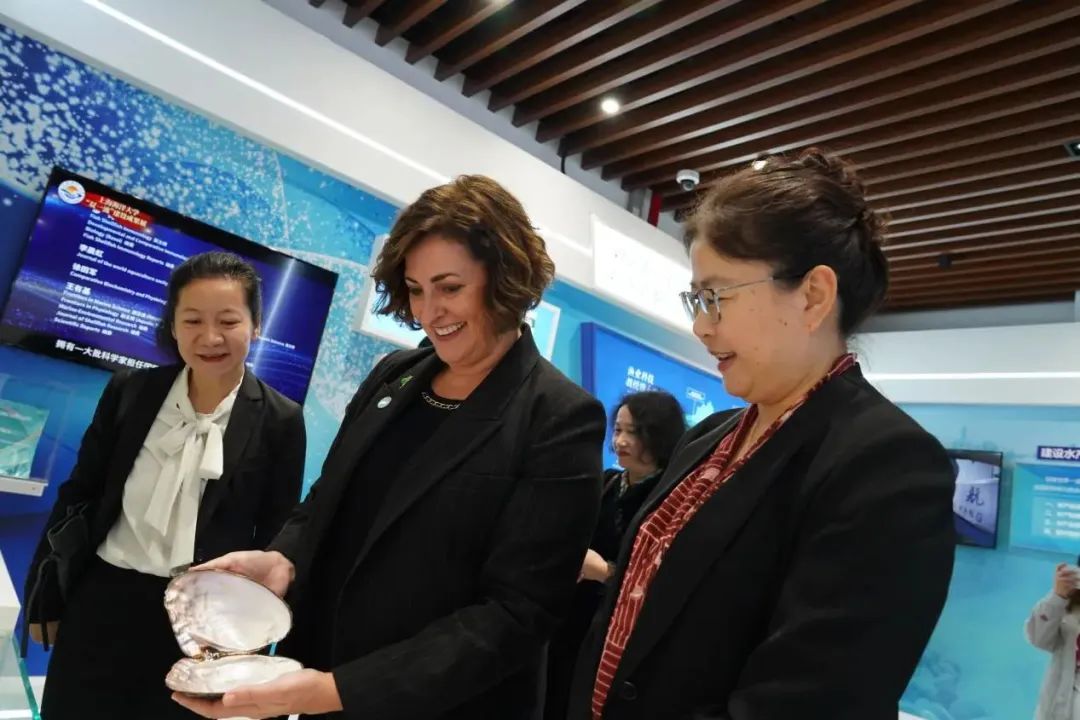
上海海洋大学与FAO建立了长达四十多年的良好合作关系。2021年9月,在上海举办的FAO第四届全球水产养殖大会发布了《促进全球水产养殖业可持续发展的上海宣言》。为落实这一行动倡议以及2030年可持续发展议程,推动可持续发展目标的实现,上海海洋大学在FAO和中国农业农村部渔业渔政管理局的悉心指导下成立了水产生态养殖中心(CEA)。该中心积极投身于绿色可持续水产养殖发展的人才培养、技术创新、产业研究及经验总结和模式推广,以全球视野推动水产生态养殖事业蓬勃发展。
Shanghai Ocean University and FAO have established a good cooperative relationship for more than 40 years, and in September 2021, the 4th FAO Global Aquaculture Conference held in Shanghai released the Shanghai Declaration on Sustainable Development of Global Aquaculture. In order to implement this action initiative as well as the 2030 Agenda for Sustainable Development, and to promote the realization of the Sustainable Development Goals (SDGs), SHOU established the Center for Aquaculture Ecology (CEA) under the careful guidance of FAO and the Administration of Fisheries and Fisheries Administration of the Ministry of Agriculture and Rural Affairs of China (MAA). The Center is actively engaged in talent training, technological innovation, industrial research, experience and model promotion for the development of green and sustainable aquaculture, and promotes the vigorous development of aquaculture with a global perspective.
FAO始终坚定不移地致力于推动全球农业发展、全力保障粮食安全以及促进农村可持续发展。副总干事此次访问,充分彰显了对上海海洋大学参与全球水产发展的高度重视与殷切期望,为学校“双一流”学科的发展注入了强劲的新动力。在FAO的精心指导下,上海海洋大学将进一步发挥“双一流”学科优势,以更加昂扬的斗志和坚定的决心,为推动全球农业的可持续发展、实现粮食安全和农村繁荣贡献更大的智慧与力量。
FAO has always been firmly committed to promoting global agricultural development, ensuring food security and promoting sustainable rural development. The visit of the Deputy Director General fully demonstrates the great importance and expectation of Shanghai Ocean University in the development of global aquaculture, and injects a strong new impetus for the development of the university's “Double first-class” disciplines. Under the careful guidance of FAO, Shanghai Ocean University will further utilize the advantages of its “Double first-class” academic disciplines, and contribute more wisdom and strength to the sustainable development of global agriculture, food security and prosperity of rural areas with higher morale and stronger determination.
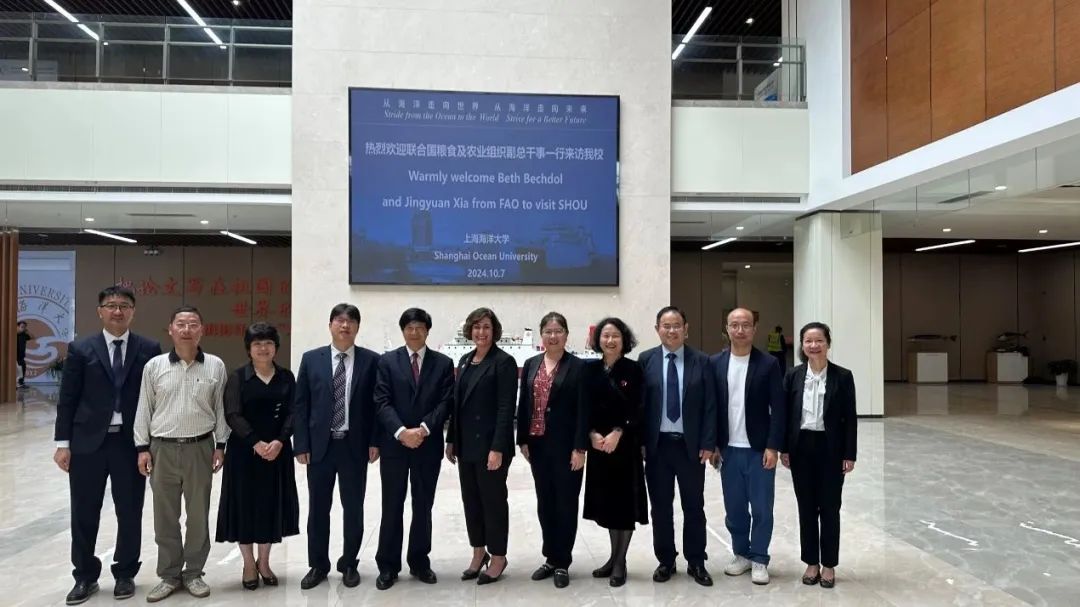
联合国粮食及农业组织(FAO),正式成立于1945年10月16日,简称“粮农组织”,属联合国专门机构。FAO宗旨包括:提高各国人民的营养水平和生活水准;提高所有粮农产品的生产和分配效率;改善农村人口的生活状况,促进世界经济的发展,并最终消除饥饿和贫困。作为世界粮农领域的信息中心,搜集和传播世界粮农生产、贸易和技术信息,促进成员国之间的信息交流;向成员国提供技术援助,以帮助提高农业技术水平;向成员国特别是发展中成员国家提供农业政策支持和咨询服务;商讨国际粮农领域的重大问题,制定有关国际行为准则和法规。
The Food and Agriculture Organization of the United Nations (FAO), formally established on 16 October 1945 as a specialized agency of the United Nations, has the following purposes: to improve the nutritional level and standard of living of all peoples; to increase the efficiency of production and distribution of all food and agricultural products; to improve the living conditions of rural populations; and to contribute to the development of the world economy and, ultimately, to the eradication of hunger and poverty. To promote the development of the world economy and ultimately the eradication of hunger and poverty. As the world's information center in the field of food and agriculture, FAO collects and disseminates information on world production, trade and technology in the field of food and agriculture and promotes the exchange of information among member countries; provides technical assistance to member countries to help raise the level of agricultural technology; provides agricultural policy support and advisory services to member countries, especially developing ones; and discusses major issues in the field of international food and agriculture and formulates the relevant international codes of conduct and regulations.